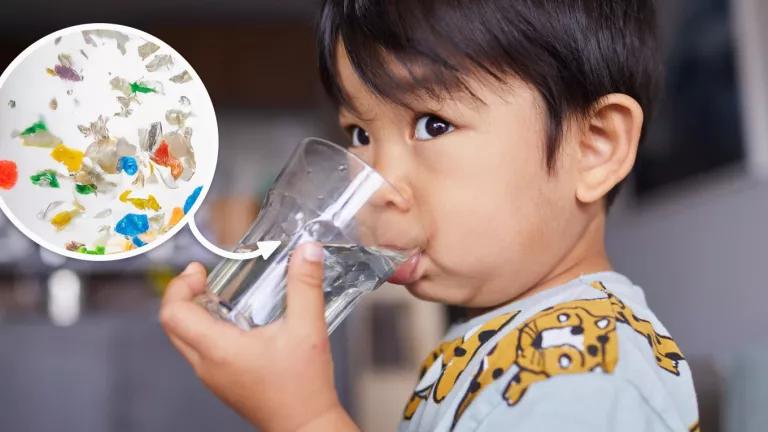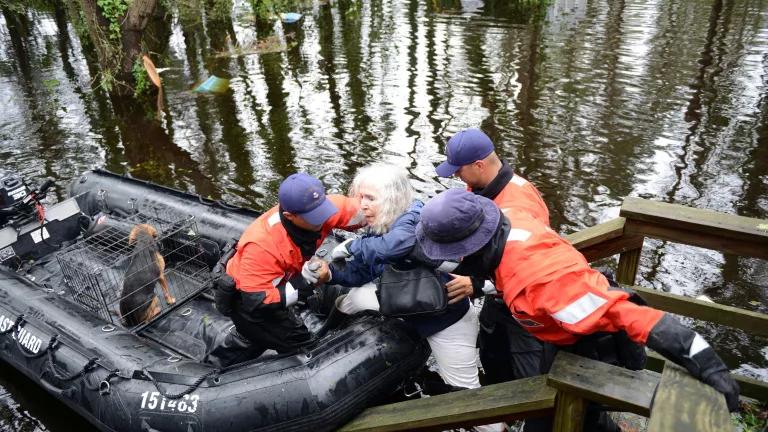Standing with Workers During the COVID-19 Crisis
NRDC is committed to supporting measures that prioritize needed assistance for people whose health and welfare are most at risk during this crisis.
Learn more about NRDC’s response to COVID-19.
The COVID-19 pandemic is an unprecedented public health crisis that has overwhelmed our already thinly stretched public health resources and forced Americans to make difficult economic choices. With millions of workers finding themselves unemployed or working through this pandemic there are big questions about how we can keep workers safe while still allowing everyone to make ends meet.
Financial hardships and a lack of access to affordable healthcare during this crisis will deepen the vulnerabilities of many communities to environmental hazards such as air and water pollution, climate change-fueled heat waves, and more.
NRDC is committed to supporting measures that prioritize needed assistance for people whose health and welfare are most at risk (see our letter to Congress). That is why we are standing in solidarity with worker advocates to support broad worker protections and expanded sick leave, unemployment and health insurance benefits. Additionally, workers should be able to exercise their rights to protect their own health and safety through collective bargaining—not just now but going forward. These rights are essential to keeping safe now and improving environmental and climate outcomes once this crisis has passed. We must help ensure that frontline workers and those that are suffering the most get what they need now and are provided a stronger foundation for the future.
Beyond our own letter to Congressional leaders calling on solutions that prioritize those most in need, we have also joined with the members of the BlueGreen Alliance in signing letters (letter 1, letter 2) amplifying the immediate needs of workers during this crisis. While Congress addressed some of these issues in the last relief package, like extended unemployment benefits, paycheck protection, individual tax credits, and access to testing, more still needs to be done.
One of the most heartbreaking issues is the lack of personal protective equipment (PPE) for healthcare and other frontline workers. Doctors, nurses, medical technicians, and other hospital staff are being asked to put their own health on the line because the richest nation on earth doesn’t have enough respirator masks to meet the need. The need for PPE goes far beyond hospitals though. Janitors cleaning buildings, teachers’ aides delivering meals at home, workers at grocery stores, on the farm, on assembly lines and in distribution centers and utilities workers who must enter a home are all at risk.
While the lack of preparedness is appalling, even more so has been the unwillingness of the Trump administration to use all the tools available to ramp up production of PPE and other medical supplies. That is why we also joined a letter with over 100 organizations calling for the use of the Defense Production Act to meet this need now (see the letter).
Another major issue facing workers is that many businesses have been slow to implement the measures needed to keep their workers safe. We have joined with others to call on OSHA to issue an Emergency Temporary Standard (ETS) for infectious diseases to ensure that workers are protected from all infectious diseases in the workplace, including COVID-19 (see the letter). Without an emergency standard, there is no assurance that workers will be sufficiently protected by their employers. Additionally, we signed a letter urging CDC to pull back a harmful guidance that allowed employers to put their workers in harms way and instead issue a more protective guidance (see the letter).
Despite the attention the federal government receives, state governments are actually the main responders to this crisis, and we are engaging on protecting workers there as well. According to updated information from the National Conference on State Legislatures, a majority of states have taken some administrative or legislative action to address the COVID crisis, but only a handful have acted to enact worker protections. The states that are moving forward with protections for working families, are taking steps to halt shutoffs and reinstate utility services, stop evictions, and ensure non-essential workers have the ability to stay home. However, state leaders can and should do more.
In California, Gov. Newsom recently announced a new set of initiatives to support workers affected by this crisis—funding programs to help workers access new sources of aid and benefits. And we’ve supported efforts at the California Public Utilities Commission to create a transparent, strategic, and holistic plan to support clean energy workers.
In Colorado, worker advocates are calling for a suite of worker protections as part of the Emergency Economic Relief Actions for Colorado from Impacts of COVID-19. NRDC is a supporter of this platform, and working with fellow environmental organizations to include an Environmental Justice addendum to protect heavily impacted communities.
Cities are also stepping up to the challenge and filling in the gaps where States can’t provide sufficient protections for workers. In Cities like Los Angeles, the HealthyLA Coalition has worked closely with Los Angeles’s City Council to assure about 440,000 additional Los Angeles workers have the right to guaranteed 14 days of paid sick leave. Congress excluded workers at firms with 500+ employees from the federal paid sick leave policy, and L.A. City Council voted to close that gap.
The L.A. City Council also passed protections for grocery and drug store workers and for delivery drivers who work for platforms like UberEats, Instacart, and Postmates. These essential workers now must be allowed to take sick leave if they feel ill and change their schedules if they need to care for their children or for sick or elderly family members. Employers are barred from retaliating against workers for making such requests. In addition to filling these gaps where State’s can’t reach, Los Angeles created a 10-million-dollar fund to support undocumented workers, the fund was spent in one day.
Last, we are supporting workers who provide us with clean energy that improves our health and fights climate change. Many of these 3.5 million clean energy workers have been furloughed or laid off due to the pausing or closure of programs like upgrading homes with the most efficient equipment or installing rooftop solar panels. Maintaining funding for those workers that need it the most throughout the crisis will ensure much needed financial relief for these families while ensuring a clean energy workforce still exists after the pandemic passes.
While we are all interconnected during this pandemic, it’s clear that those who have been laid off and those working without PPE are at most risk. We are also seeing how people with preexisting respiratory conditions, communities of color, communities with long-term unemployment and under-employment, undocumented workers and others will likely suffer more because of decades of unequal treatment.
That’s why we must look at all workers during this crisis because protections are only as strong as those afforded to the most vulnerable. Resources must be mobilized quickly to save as many as possible, but once we are through this our responsibility only rises. Then we must reopen responsibly, and rebuild in a more resilient, fairer and cleaner way so that, hopefully, we all are better equipped to handle the next crisis.



